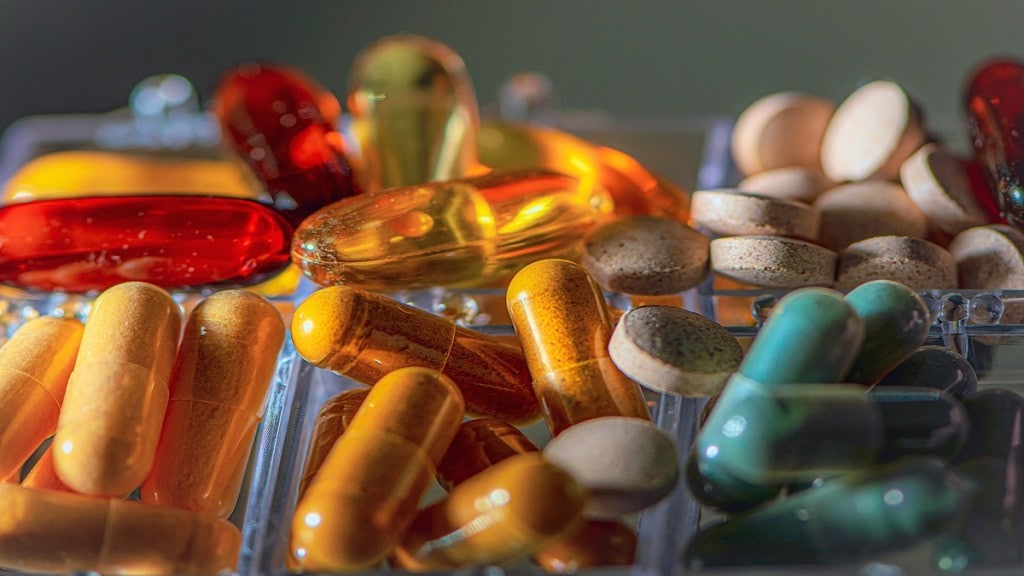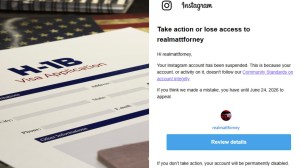Access to Medicine Foundation on Tuesday launched the inaugural report on its Generic & Biosimilar Medicines Programme and it takes an in-depth look at what five major industry players are doing to expand access to their products in low- and middle-income countries (LMICs).
The report marks the first time that any generic or biosimilar medicine manufacturers have been assessed in-depth on their access-to-medicine efforts.
This first iteration profiles Cipla, Hikma, Sun Pharma, Teva and Viatris, analysing their engagement in access and highlighting opportunities to address gaps in affordable and reliable access to the quality-assured essential medicines produced by these companies.
The report identifies key findings and opportunities to strengthen manufacturing and improve the availability of generic and biosimilar medicines. In 90 of the 108 countries in scope, at least one of the companies has registered a product – but for the essential medicines analysed in more detail, companies vary significantly in their registration practices in LMICs, the report revealed.
Why are generics so critical to expanding access to medicine?
According to Access to Medicine Foundation, generic and biosimilar medicines can serve as lifelines to millions. Of the medicines classed as “essential” by the World Health Organization (WHO), 90 percent are off patent, including treatments for cancers, heart disease, epilepsy, diabetes, maternal haemorrhage, bacterial infection, tuberculosis, malaria and HIV.
Once a patent for a medicine expires, other drug manufacturers are free to develop a generic or biosimilar version and enter the market, potentially introducing competition and increasing supply. Not only do generics and biosimilars offer the same therapeutic and clinical benefits as the originator medicines, but they are often supplied at a much lower cost.
Some of these companies now also manufacture generic or biosimilar versions of patented products under voluntary licensing agreements, which can expand and accelerate access to innovative medicines worldwide.
However, generic and biosimilar products are still out of reach for many patients in LMICs, especially those living in low-income countries and those from vulnerable populations. Even if a product is comparatively cheaper, payers may still not be able to afford it – including healthcare authorities in LMICs, as well as individuals who rely on paying out of pocket for their healthcare – and there are also significant availability issues. The world’s leading producers of generic and biosimilar medicines occupy a central position in the global health landscape, and they can use this to expand access to essential medicines.
“When it comes to expanding access to medicine, the power of the generics industry is often underestimated. It’s more than the transactional relationship of selling drugs at volume and competing on price. Companies must engage with the unmet medical need globally – for example, by working with local manufacturers to improve supply, by taking steps to safeguard quality, by making their essential products available in more countries, and by addressing affordability for the poorest patients,” Jayasree K Iyer, Chief Executive Officer, Access to Medicine Foundation said.
Five Company Profiles map efforts of leading producers
Using the Analytical Framework, a first-of-its-kind assessment tool developed by the Foundation’s newly established Generic & Biosimilar Medicines Programme, this data-driven analysis zooms in on the actions of five companies chosen for their size, influence and involvement in global health: Cipla, Hikma, Sun Pharma, Teva and Viatris.
Collectively, these five companies have a wide portfolio of essential medicines and a well-established presence in LMICs: 90 percent of the 102 off-patent essential medicines identified by the Foundation as priorities for access in LMICs are in the portfolios of at least one of these companies, and in 89 out of the 108 countries in scope, at least one company has a sales presence.
What did the report find?
Companies have potential to register more of their essential products in LMICs
In 90 of the 108 countries in scope, at least one company has previously registered a product from its portfolio, which indicates that the companies’ existing regulatory reach in LMICs is collectively broad. It also demonstrates their capability to register other products within that same country, revealing untapped potential.
Despite this, an analysis of a subset of ten essential medicines per company does reveal access gaps. In aggregate, companies have registered these products – identified as priorities for access – in 77 countries in scope, out of the 90 in which they have existing regulatory reach. Some of these products have been registered in very few LMICs, and analysis of the companies’ product registration practices in LMICs shows significant variation between companies. For example, Viatris has registered trastuzumab, a biosimilar indicated for the treatment of breast cancer, in a total of 51 countries in scope, including six low-income countries. However, one company has not filed any of its ten assessed products in any low-income country.
Companies are using access strategies to expand access to their products in LMICs. But efforts fall short for the poorest patients
For these ten assessed products per company – 50 overall – the analysis found that companies had strategies in place to expand access to 41 of them. However, these strategies are very limited in scope, and especially do not address affordability considerations for the poorest patients, including those who are uninsured and must pay out-of-pocket for medicine.
“For instance, only one of the examples submitted included a pricing strategy for that product (levonorgestrel) that takes account of payers’ ability to pay in both the public and private sector. Viatris supplies this contraceptive product to both public and private institutions in Kenya via participation in competitive bidding mechanisms, and collaborates with a local partner to enhance product reach and distribution, while tracking and reporting patient reach,” the Foundation said in a statement.
Both Viatris and Sun Pharma also use patient assistance programmes to expand access to their products –for example, Sun Pharma reports this as a way it expands access to the cancer treatment gemcitabine in Thailand.
“For the very first time, we’re shining a spotlight on the actions, efforts, and commitments of leading generic and biosimilar medicine manufacturers to broaden access to lifesaving medicines in LMICs. Although there are standout examples of action, clear opportunities also exist for companies to ramp up their efforts and to work closely with local implementers, governments, and global health organisations to continue to break down barriers for the millions who either lack adequate access or are forced to go without the medicines they need,” Claudia Martínez, Research Programme Manager, Generic & Biosimilar Medicines Programme said in a statement.
Despite initiatives to strengthen manufacturing, further efforts needed to safeguard product availability
According to the report, among the five companies, a handful of initiatives to bolster local manufacturing capacity in LMICs or facilitate technology transfer to local partners could be identified. For instance, Hikma has leveraged its active pharmaceutical ingredient (API) production for oncology products to supply these in the Middle East and North Africa, which has helped address demand surges, ensuring a steady supply.
Additionally, Cipla plans on leveraging its manufacturing presence in South Africa to manufacture an HIV prevention drug as part of a licensing agreement, providing the potential for increased availability.
Broadly, all companies implement at least some strategies to promote a continuous supply of their products and mitigate the risk of shortages and stockouts, and to ensure the quality and safety of their marketed products. For example, Teva maintains buffer stocks of APIs, critical components and finished goods, and has developed special software for optimising global stocks.
Companies are engaging in adaptive R&D, tailoring products to the needs of people in LMICs
The report also found strong examples of how companies are engaging in adaptive R&D to tailoring products to the needs of people in LMICs, with nine adaptive R&D projects identified among the companies in scope. These include products specifically adapted for children; products adapted so that they do not require refrigeration; and formulations that simplify dosing regimens. For example, Cipla’s heat-stable 4-in-1 fixed-dose combination (FDC) combines four different antiretroviral drugs that can be used to treat children with HIV. The strawberry-flavored granules do not contain alcohol or inappropriate solvents and can be sprinkled on food, making it easier for children to take their medication.
Opportunities to make an impact
Given their portfolios and footprints, these five companies – Cipla, Hikma, Sun Pharma, Teva and Viatris – can have a huge impact on access in LMICs, as can the wider generics industry.
The report identifies opportunities for each company to significantly enhance its impact and contribute to improving access to medicine in LMICs, with recommendations tailored to the specific circumstances of each company, as well as its portfolio, geographical reach and size.
“By acting on these opportunities, and by making access to medicine a priority, companies can ensure that their products reach the people who need them most – no matter where they live,” it added.







